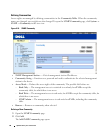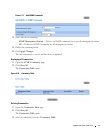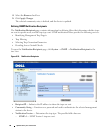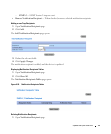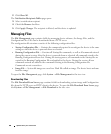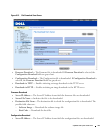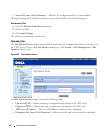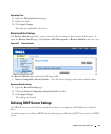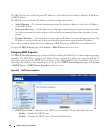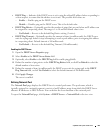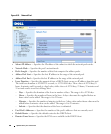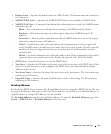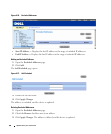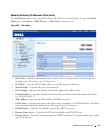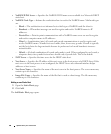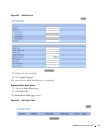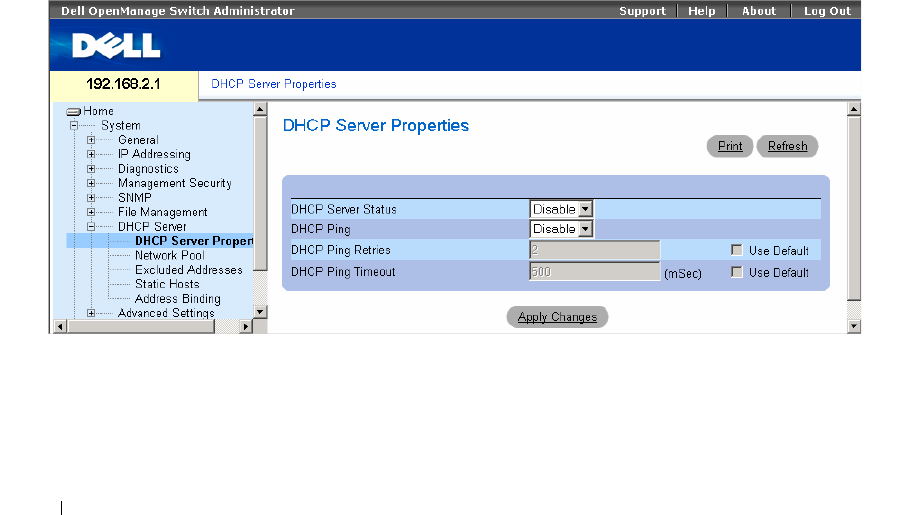
84 Update with your book title
The DHCP server uses a defined pool of IP addresses (user-defined) from which it allocates IP addresses
to DHCP clients.
The DHCP server can allocate IP addresses in three configuration modes:
•
Static allocation
— The network administrator maps the hardware address of a host to an IP address
on the DHCP server.
•
Permanent allocation
— An IP address received through a standard request-reply mechanism is owned
by a client permanently (unless changes in the network environment/connections take place, for any
reason).
•
Dynamic allocation
— A network device obtains a leased IP address for a specified period of time. The
IP address is revoked at the end of this period and the switch must request another IP address.
This section contains information for configuring a DHCP server on a DHCP-server-enabled switch.
To open the DHCP Server page, click System
→ DHCP Server in the tree view.
Configuring DHCP Properties
The DHCP Server Properties page contains fields for enabling the DHCP server and configuring pinging
capability. The DHCP Server pings a pool address before assigning this address to a requesting client. If
the ping is unanswered, the DHCP Server assumes (with a high probaility) that the address is not in use
and assigns the address to the requesting client. To open the DHCP Server Properties page, click System
→ DHCP Server → DHCP Server Properties in the tree view.
Figure 6-24. DHCP Server Properties
•
DHCP Server Status
— Indicates if the DHCP server is enabled. The possible field values are:
–
Enable
— Enables the DHCP server.
–
Disable
— Disables the DHCP server. This is the default value.



